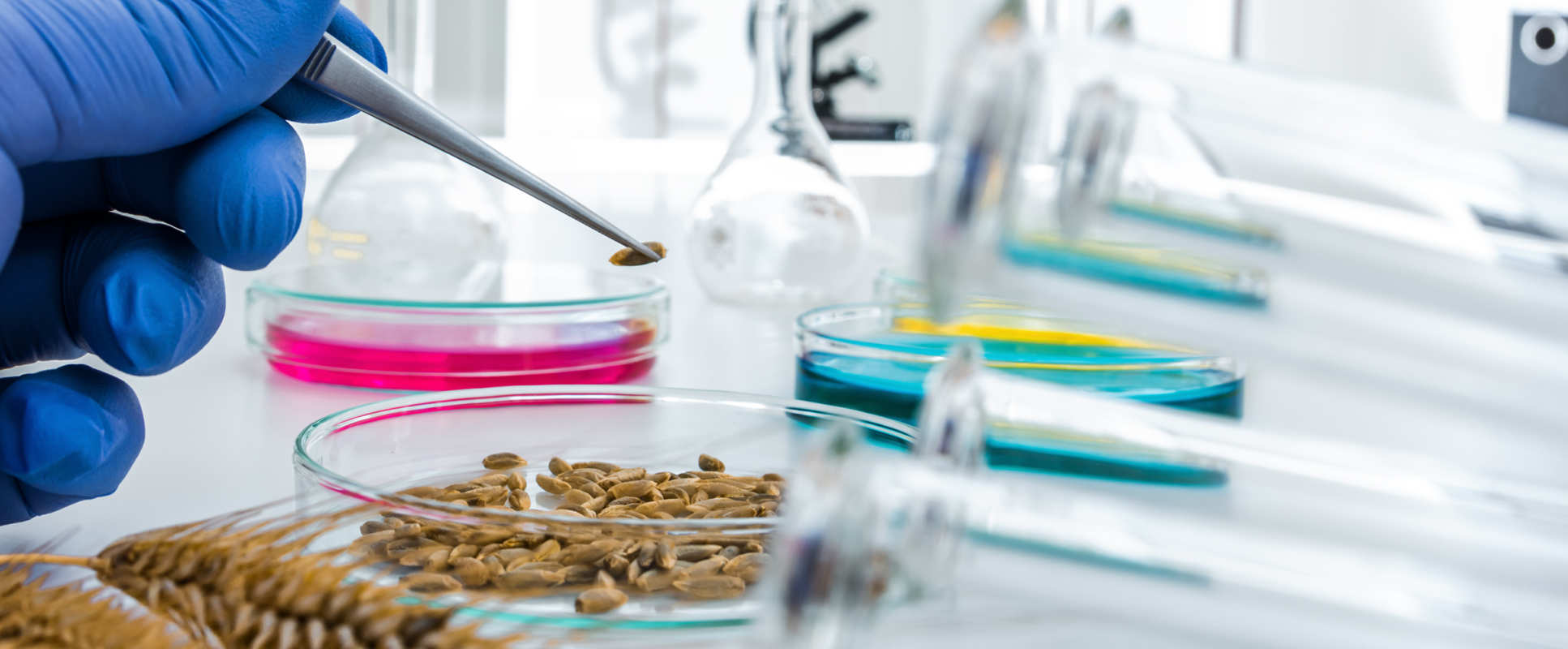Intelligent food design, engineering and monitoring
 The way we consume food is changing with advances in modern technology, food availability, the changing home environment, increased travel and exposure to new cultures. We are seeing an increased interest from the general public to improve their health and well-being through changes in their diets without compromising on taste, quality, food safety or cost. Within this changing environment, we are facing complex issues; food manufacturers need to come up with nutritious and healthy food that is tasty and innovative while regulators need to ensure that new food designs and behaviours are safe.
The way we consume food is changing with advances in modern technology, food availability, the changing home environment, increased travel and exposure to new cultures. We are seeing an increased interest from the general public to improve their health and well-being through changes in their diets without compromising on taste, quality, food safety or cost. Within this changing environment, we are facing complex issues; food manufacturers need to come up with nutritious and healthy food that is tasty and innovative while regulators need to ensure that new food designs and behaviours are safe.
The vision of the Intelligent Food Design, Engineering and Monitoring research programme is to deliver solutions to these issues by combining molecular, medicine, engineering, business and economic approaches. Physicists, Chemists and Engineers are trying to better understand the microstructure of food to create a better understanding of how food is digested and to model future work so that nutritional composition can be improved or to enhance flavour, texture and mouth feel. Design engineering research is utilising the latest developments in science, technology, business, economics, policy and society to create and design new food and packaging solutions that can encourage and promote healthier eating behaviours, improving the health and wellbeing of the nation. Smart monitoring devices and personalised nutrition will be available in the not so distant future which may give a better understanding of the body’s response to food and allow for the use of truly personalised nutrition.
Guided by Imperial’s principles of collaboration and research excellence we will harness expertise across different disciplines within the College and seek for real-life challenges through collaboration with industry and policy makers. Our ultimate goal is to include “Imperial designed food” in the urban dictionary as a synonym of healthy and innovative food solutions. We aim to deliver a positive impact to society by delivering innovative food solutions that promote healthier nutrition while enhancing the food experience.
Key Imperial infrastructure: Institute of Chemical Biology, , Synthetic Biology Hub, MRC-NIHR BRC National Phenome Centre, Soft solids, Tribology group, Engineering design, Body Sensor Network, Wearable technologies lab, Brain and behaviour lab
Theme leads
Professor Peter Childs
Professor Peter Childs is Head of the Dyson School of Design Engineering and the Professorial Lead in Engineering Design at Imperial College London. His general interests include: creativity; the application of creativity tools; mechanical and product design; robotics; rotating flow, temperature and its measurement, sustainable energy component, concept and system design. He has contributed to over 160 refereed papers since completion of his doctorate in 1991, several books including the handbook of mechanical design engineering and monographs on temperature measurement and rotating flow. He is a director at Q-Bot Ltd and several start-ups and SMEs.
Dr Maria Charalambides
Dr Maria Charalambides is a Reader in Mechanics of Materials in the Department of Mechanical Engineering at Imperial College London. Her published research includes material modelling and mechanical characterisation of soft polymeric solids and specifically foods, micromechanics models of particulate filled polymeric composites as well as cellular structures, experimental and numerical modelling of industrial food processes such as rolling, extrusion and cutting, development of inverse indentation methods material characterisation of polymers, and fracture and deformation in paint and adhesive coatings.
Dyson School of Design Engineering
Dr Marco Aurisicchio
/prod01/channel_2/media/migration/research-groups/Aurisicchio,-Marco--tojpeg_1495452629326_x4.jpg)
Dr Marco Aurisicchio
Senior Lecturer
Department of Mechanical Engineering
Dr Philippa Cann
/prod01/channel_2/media/migration/research-groups/Cann--tojpeg_1491925886065_x4.jpg)
Dr Philippa Cann
Principal Research Fellow
Dr Maria Charalambides
/prod01/channel_2/media/migration/research-groups/Charalambides--tojpeg_1487857149623_x4.jpg)
Dr Maria Charalambides
Reader in Mechanics of Materials
Professor Yannis Hardalupas
/prod01/channel_2/media/migration/research-groups/Hardalupas--tojpeg_1495202265950_x4.jpg)
Professor Yannis Hardalupas
Professor of Multiphase Flows
Dr Marc Masen
/prod01/channel_2/media/migration/research-groups/Masen--tojpeg_1491925803978_x4.jpg)
Dr Marc Masen
Senior Lecturer
Dr Tom Reddyhoff
/prod01/channel_2/media/migration/research-groups/Reddyhoff--tojpeg_1501589531610_x4.jpg)
Dr Tom Reddyhoff
Senior Lecturer
Department of Chemical Engineering
Dr Rongjun Chen
/prod01/channel_2/media/migration/research-groups/Chen--tojpeg_1501673988230_x4.jpg)
Dr Rongjun Chen
Senior Lecturer
Dr Miao Guo
/prod01/channel_2/media/migration/research-groups/Guo-Miao--tojpeg_1491925503023_x4.jpg)
Dr Miao Guo
Research Fellow
Professor Omar K. Matar
/prod01/channel_2/media/migration/research-groups/Matar,-Omar--tojpeg_1495453073734_x4.jpg)
Professor Omar K. Matar
Professor of Fluid Mechanics
Dr Roberto Rinaldi
/prod01/channel_2/media/migration/research-groups/Rinaldi--tojpeg_1506517223757_x4.jpg)
Dr Roberto Rinaldi
Senior Lecturer
Professor Nilay Shah
/prod01/channel_2/media/migration/research-groups/Shah--tojpeg_1487858822852_x4.jpg)
Professor Nilay Shah
Head of Department of Chemical Engineering
Professor David C. Stuckey
/prod01/channel_2/media/migration/research-groups/Stuckey--tojpeg_1501588889935_x4.jpg)
Professor David C. Stuckey
Professor of Biochemical Engineering
Dr Daryl Williams
/prod01/channel_2/media/migration/research-groups/Williams-Daryl--tojpeg_1495184068041_x4.jpg)
Dr Daryl Williams
Reader in Particle Science
Department of Bioengineering
Professor Richard Kitney
/prod01/channel_2/media/migration/research-groups/Kitney--tojpeg_1487858481698_x4.jpg)
Professor Richard Kitney
Professor of BioMedical Systems Engineering
Dr Mengxing Tang
/prod01/channel_2/media/migration/research-groups/Tang,-Mengxing--tojpeg_1495544556418_x4.jpg)
Dr Mengxing Tang
Reader in Biomedical Imaging
Department of Electrical and Electronic Engineering
Dr Pantelis Georgiou
/prod01/channel_2/media/migration/research-groups/Georgiou--tojpeg_1487857663656_x4.jpg)
Dr Pantelis Georgiou
Senior Lecturer
Professor Chris Toumazou
/prod01/channel_2/media/migration/research-groups/Toumazou--tojpeg_1487864720973_x4.jpg)
Professor Chris Toumazou
Winston Wong Chair, Biomedical Circuits, Regius Professor of Engineering
Department of Earth Science and Engineering
Professor Jan Cilliers
/prod01/channel_2/media/migration/research-groups/Cilliers,-Jan--tojpeg_1495543689437_x4.jpg)
Professor Jan Cilliers
Chair in Mineral Processing
Department of Physics
Professor Peter Török
/prod01/channel_2/media/migration/research-groups/Torok--tojpeg_1491925963623_x4.jpg)
Professor Peter Török
Professor of Optical Physics



/prod01/channel_2/media/migration/research-groups/Baxter--tojpeg_1504689333048_x4.jpg)
/prod01/channel_2/media/migration/research-groups/Childs--tojpeg_1487857264554_x4.jpg)
/prod01/channel_2/media/migration/research-groups/Green--tojpeg_1487857875939_x4.jpg)
/prod01/channel_2/media/migration/research-groups/Myant--tojpeg_1487858652884_x4.jpg)